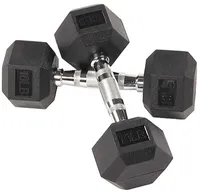An expert trainer says you only need these three exercises to build full-body strength at home
Build muscle all over and increase your strength levels in 30 minutes with this quick routine

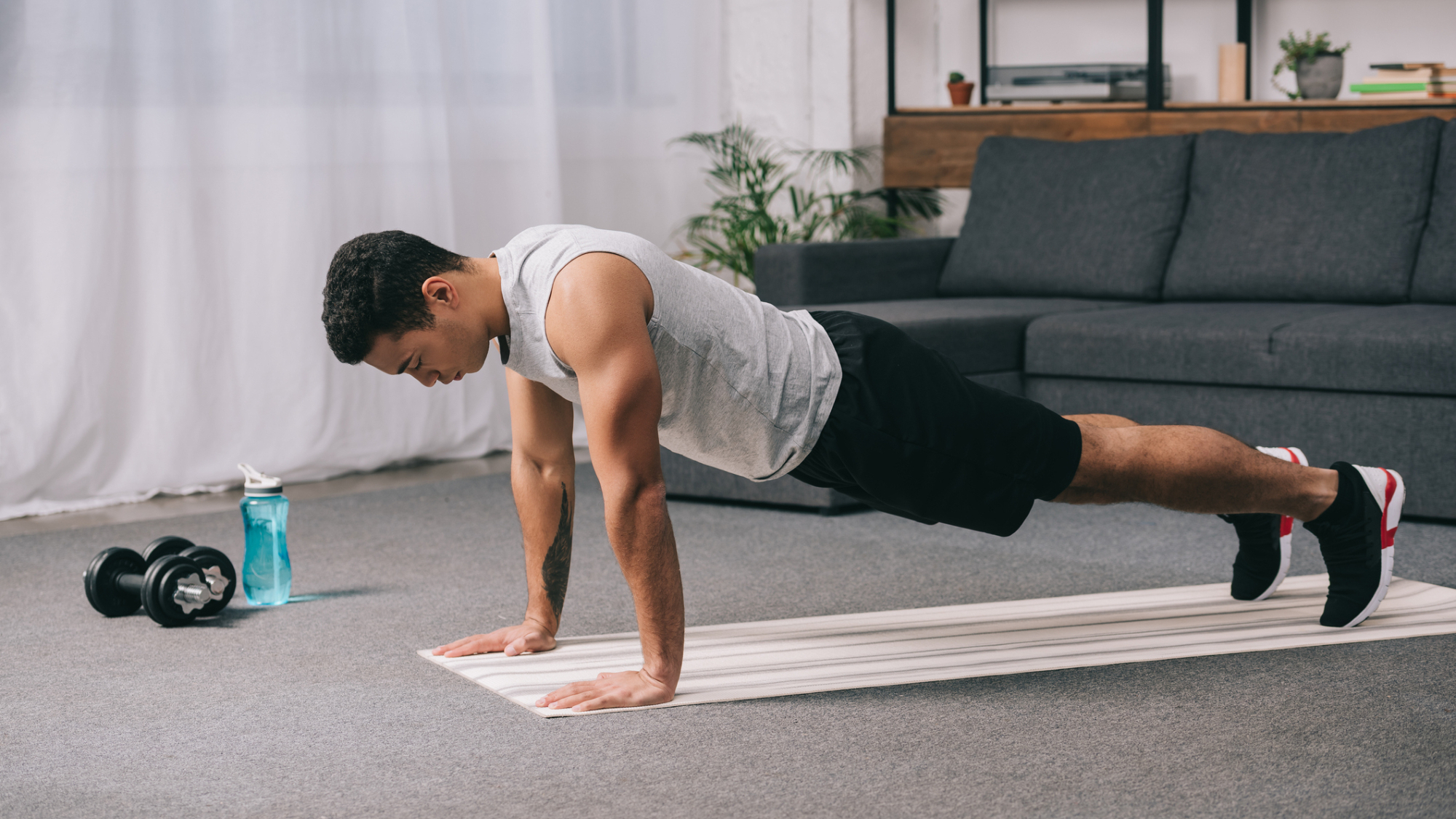
Strength training is good for all kinds of things. It helps you build muscle, improves your bone health and can even boost your metabolism. But it can be expensive and time-consuming to head to the gym every day, which is why it's useful to have a simple home workout committed to memory.
We asked Ryan Horton—a strength and conditioning coach, sports scientist and founder of Horton Barbell—what three-move routine he'd recommend.
"I'd go for push-ups, pull-ups and dumbbell squats, assuming we have some dumbbells to use at home," he told Fit&Well.
Combined into a circuit, these exercises will work every major muscle group in your body, providing a time-savvy full-body workout. Scroll down to see explanations of each move along with equipment-free variations.
BalanceFrom Rubber Coated Hex Dumbbells 10lb Pair: was $33.99, now $24.99 at Amazon
Save 26% Sturdy and versatile, dumbbells are the ultimate training tool to help you build muscle at home. If you don't own any, this 10lb pair (still down amost $10 after the Prime Day sale) is a great beginner option.
How to do Ryan Horton's three-move strength-boosting workout
Perform the three exercises as a circuit, completing eight to 12 repetitions of each one with minimal rest in between moves. Repeat this sequence until you've finished four total rounds.
"I would say to try and take minimal rest," says Horton. "You don’t have to go from one exercise straight into the other, just take a couple of breaths or 10-15 seconds, then, when you feel ready, jump into the next one."
1. Goblet squat
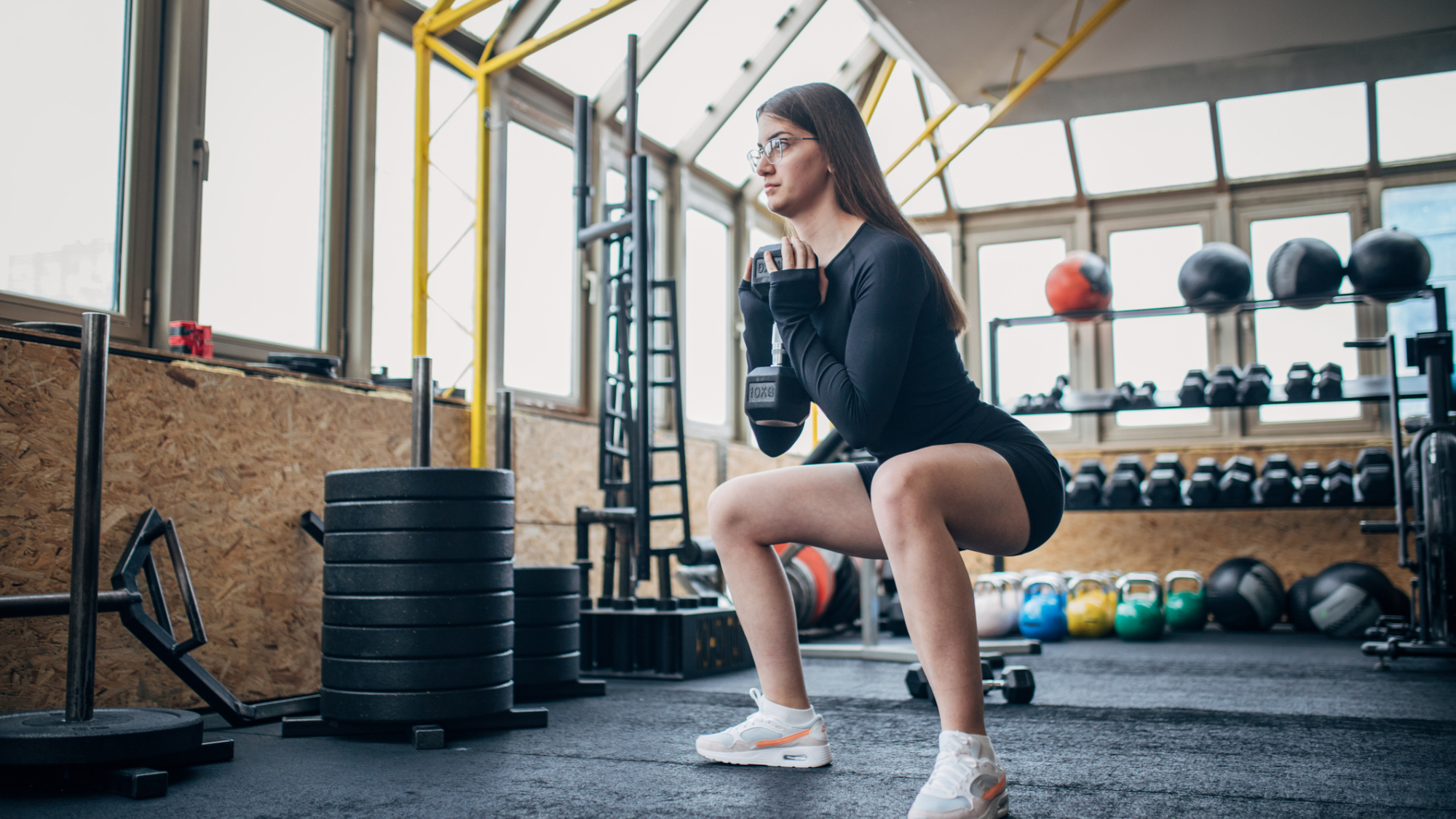
Sets: 4 Reps: 8-12
Start your week with achievable workout ideas, health tips and wellbeing advice in your inbox.
- Hold a dumbbell in both hands tight to your chest (as pictured above). Stand with your feet a little wider than hip-width apart and your toes pointed outwards slightly.
- Keeping your spine straight and your chest facing forward, push your hips backwards then bend your knees to drop your hips towards the ground. Lower your hips until your thighs are parallel (or below) with the ground.
- Drive through your feet to return to the starting position.
Alternatives:
For an easier, equipment-free alternative, try doing the squats without any dumbbells. If you need more of a challenge, do some Bulgarian split squats, resting one foot behind you on an elevated surface (like a couch) and squatting down into your active leg.
2. Pull-up
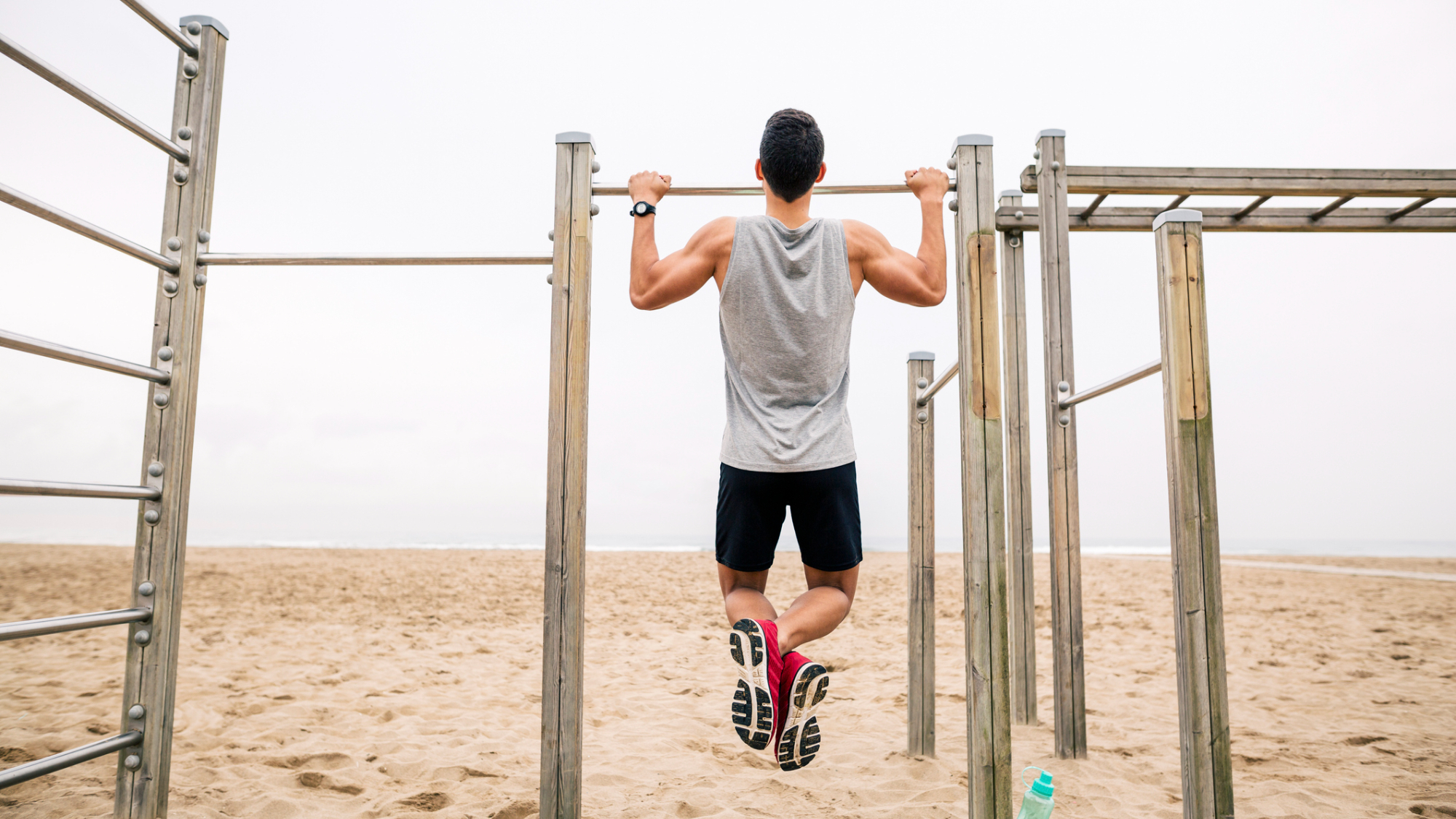
Sets: 4 Reps: 8-12
- Grab a pull-up bar with an overhand grip, placing your hands slightly wider than shoulder-width apart.
- Pull your shoulders back and down to retract your shoulder blades, then brace your core and pull yourself upwards until your chin is above the bar. Keep your core tight and your legs still during this movement (or you might be tempted to jerk your knees upwards, using momentum to help you propel your chin over the bar).
- Control yourself back to the starting position—that's one repetition.
Alternatives
If you need an easier, equipment-free option, try doing some superman pull-ups on the floor instead (demonstrated in the video below). If you have a set of dumbbells, you could also do some bent-over rows to activate the same muscles.
3. Push-up
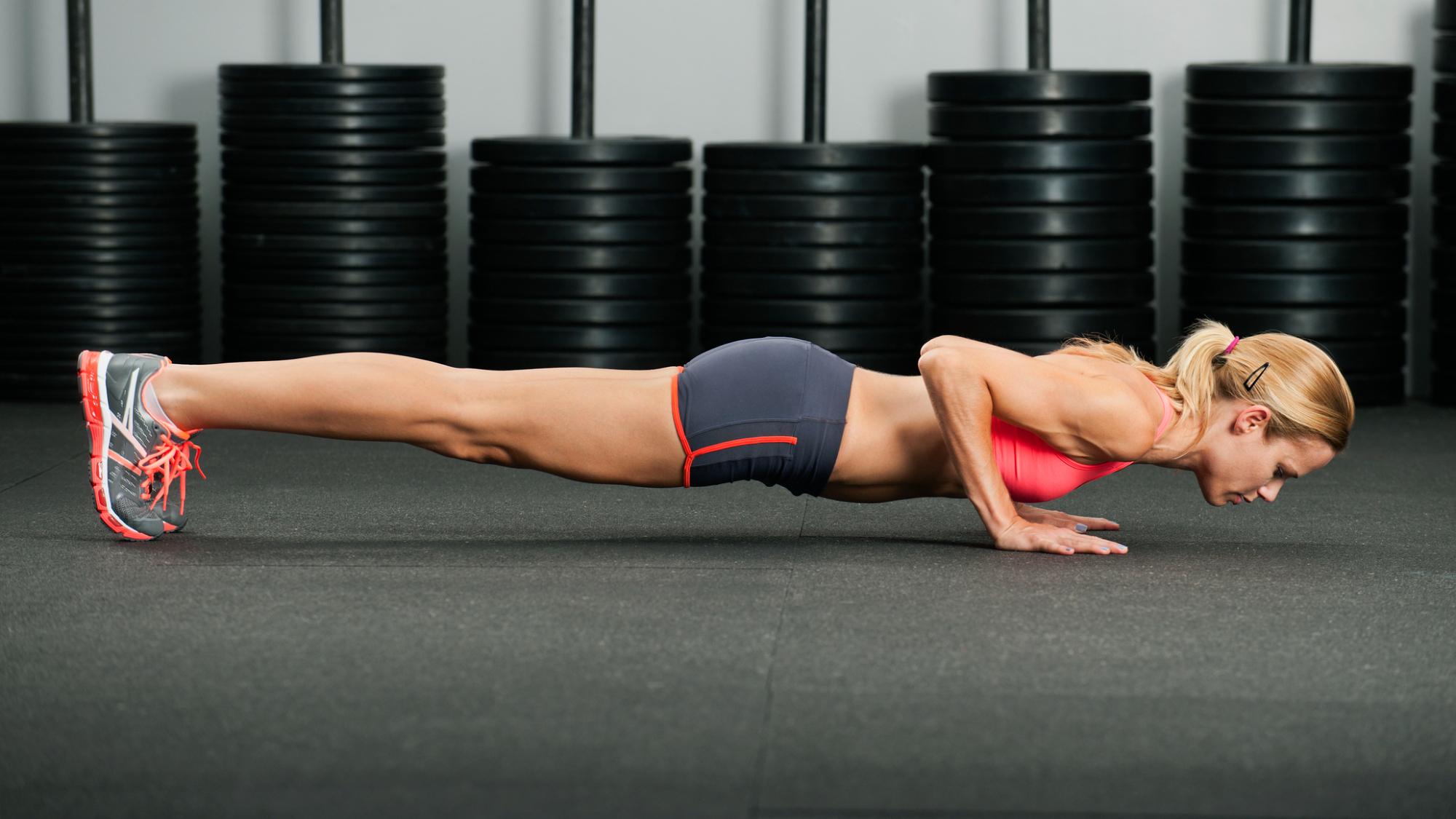
Sets: 4 Reps: 8-12
- Start in a high plank position, with only your hands and toes in contact with the floor. Your hands should be directly beneath your shoulders, and your core should be tight so your neck, back and legs form a straight line.
- Keeping your arms tucked close to your sides, bend your elbows to lower your chest until it's less than an inch from the ground.
- Drive through your hands to return to the starting position.
Alternatives
If you find traditional push-ups too challenging, try dropping your knees to the floor during the movement, or placing your hands on an elevated surface.
Benefits of this workout
This is an efficient and effective full-body workout, but that isn't the only reason Horton selected these specific exercises in a circuit format.
"The exercises themselves are all good strength-builders and muscle-builders," he explains. "And, by doing it in this format where you’re doing it more circuit-style, as opposed to just one exercise at a time, you can increase your tempo, which is going to increase your calorie burn."
Horton also recommends adding a few quick core exercises on to the end of the session to make it an even more comprehensive strength-booster (this core workout for beginners is a good option if you're looking for ideas).
Top tips
Horton provides a range of reps (eight to 12) to complete for each exercise as he wants you to truly test your muscles.
In the first set, when you're feeling fresh, it should be difficult but achievable to hit all 12 repetitions on each exercise. But, as the rounds go on and your muscles tire, you may find you aren't able to reach this figure.
At this point, aim to hit the highest number of repetitions you can. This will provide the challenging stimulus your body needs to build strength and muscle—this is called the progressive overload principle.
Need help choosing your weights? Our guide to the best adjustable dumbbells can help

Harry Bullmore is a Fitness Writer for Fit&Well and its sister site Coach, covering accessible home workouts, strength training session, and yoga routines. He joined the team from Hearst, where he reviewed products for Men's Health, Women's Health, and Runner's World. He is passionate about the physical and mental benefits of exercise, and splits his time between weightlifting, CrossFit, and gymnastics, which he does to build strength, boost his wellbeing, and have fun.
Harry is a NCTJ-qualified journalist, and has written for Vice, Learning Disability Today, and The Argus, where he was a crime, politics, and sports reporter for several UK regional and national newspapers.
